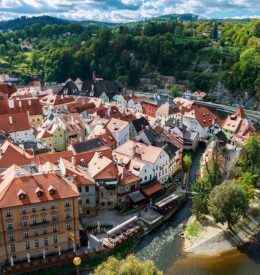

Czech Republic Work Permit Visa Guide
Types of Work Permits in the Czech Republic
Employee Card (Pracovní karta)
- The Employee Card combines both a work permit and residence permit into a single document. This is the most common work permit for non-EU nationals.
- It is issued for skilled workers and typically granted for 2 years, with the possibility of
- The Employee Card is usually issued for full-time employment in a specific occupation or
Czech Green Card (for Highly Skilled Workers)
- The Green Card is a special type of Employee Card for highly skilled workers in certain fields. It is typically issued to people with higher qualifications or those working in high-demand sectors, such as IT, engineering, and science.
EU Blue Card
- The EU Blue Card is designed for highly skilled professionals who have a job offer with a higher salary threshold than that of the average worker in the Czech Republic. It provides certain rights to work and live in the Czech Republic and facilitates mobility within the EU for qualified
- The EU Blue Card is valid for up to 4 years
Intra-Corporate Transfer (ICT) Permit
- For employees of multinational companies who are transferred to their company’s branch in the Czech Republic. This work permit is typically used for managerial, technical, or highly skilled
Seasonal Worker Permit
- For workers in industries such as agriculture, tourism, and construction. This permit is issued for seasonal employment, typically valid for up to 6 months per year.
Work Permit Visa Process
Step 1: Employer Application for a Work Permit
In most cases, the process starts with the employer in the Czech Republic applying for a work permit on behalf of the foreign worker. The employer must prove that no suitable candidates were found within the Czech labor market or EU/EEA.
Labor Market Test
Submit Documents
- Proof of the company’s legal status.
- Job offer or employment contract.
- Evidence of the employee’s qualifications and professional experience.
- A salary that meets or exceeds the minimum wage or sectoral wage levels.

Step 2: Application for an Employee Card or Other Work Permit
Once the employer’s application is approved, the non-EU employee can apply for an Employee Card (for most jobs) or another relevant permit (such as the EU Blue Card). The application is submitted to the Czech Embassy or Consulate in the employee’s home country.
Documents required for the application:
- Valid
- Copy of the work permit
- Employment
- Proof of qualifications (education, professional experience).
- Proof of sufficient financial
- Health insurance coverage for the duration of
- Application form and passport-sized
The processing time for the work permit and visa is typically 60 days, but it can vary depending on the consulate.
Step 3: Visa and Residence Permit
Once the work permit is approved, the non-EU national can apply for a long-term national visa (type D) at the Czech embassy or consulate in their home country. The national visa allows the worker to enter the Czech Republic.
- Visa Approval: After approval, the worker will receive a long-term visa (typically valid for up to 90 days), which allows them to enter the country and apply for the Employee Card or another residence permit upon arrival.
- Residence Registration: Once in the Czech Republic, the employee must register their residence at the local foreign police department within 3 working days. They will also need to apply for their residence card (for stays longer than 90 days).

Step 4: Receiving the Work Permit and Starting Employment
Step 5: Extensions and Permanent Residency
- Permanent Residency: After residing in the Czech Republic for 5 continuous years, a non-EU national can apply for permanent residency, provided they meet language, income, and other criteria.

Key Requirements for Work Permits
2. Salary Standards: The salary offered must meet the minimum wage requirements in the Czech Republic. For highly skilled positions (e.g., under the EU Blue Card scheme), a higher salary threshold is required.
3. Health Insurance: The applicant must have valid health insurance for the duration of their stay in the Czech Republic.
4. Qualifications: Depending on the type of work permit, the applicant may need to provide proof of educational qualifications and professional experience. Highly skilled workers (for an EU Blue Card) are expected to have at least a higher education degree.
5. Labor Market Test: The employer must demonstrate that no suitable candidates from the local labor market (Czech citizens or EU nationals) were found for the position.
Duration of Work Permits and Extensions
- EU Blue Card: Valid for up to 2–4 years, with the possibility of extension. After 18 months, the holder can move to another EU member state under the Blue Card program.
- Seasonal Work Permits: Valid for up to 6 months per year, typically renewed annually.
Special Considerations
- EU Blue Card: This program targets highly skilled professionals, particularly in fields such as IT, engineering, and healthcare. To be eligible, applicants need to meet specific salary and qualification requirements. The EU Blue Card offers additional rights, such as easier mobility within the EU.
- Intra-Corporate Transfer (ICT) Permit: This is for employees transferred by multinational companies. The ICT permit is a fast-track option for managerial and technical roles.
- Seasonal Employment: Citizens of certain countries (such as Ukraine, Moldova, and Belarus) can apply for seasonal work permits with fewer formalities, particularly in agriculture or tourism.

Important Citations and Legal Sources
Czech Ministry of the Interior
- [Czech Ministry of the Interior](https://www.mvcr.cz/mvcren/)
Czech Ministry of Labor and Social Affairs (MPSV)
- [Czech Ministry of Labor and Social Affairs](https://www.mpsv.cz/en)
EU Blue Card Directive
- [EU Blue Card](https://ec.europa.eu/immigration/blue-card_en)
Conclusion
The process of obtaining a work permit for the Czech Republic as a non-EU national involves multiple steps, including employer approval, visa application, and residence registration. With options like the Employee Card, EU Blue Card, and seasonal work permits, there are different pathways for employment based on the nature of the work and the qualifications of the worker. Understanding the application process and meeting the required criteria is essential for a successful work permit application.
For up-to-date and detailed information, always consult the Czech Ministry of the Interior, the Ministry of Labor and Social Affairs, or the Czech Embassy.
